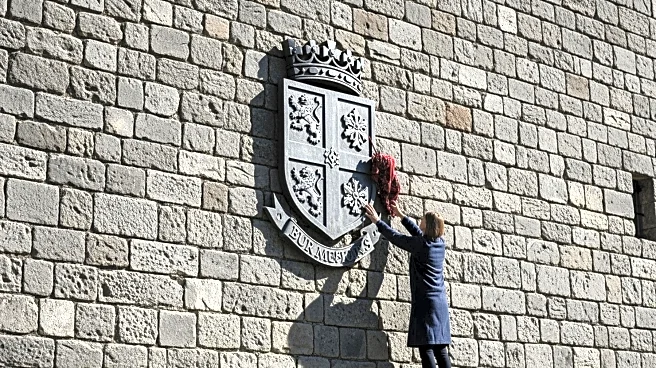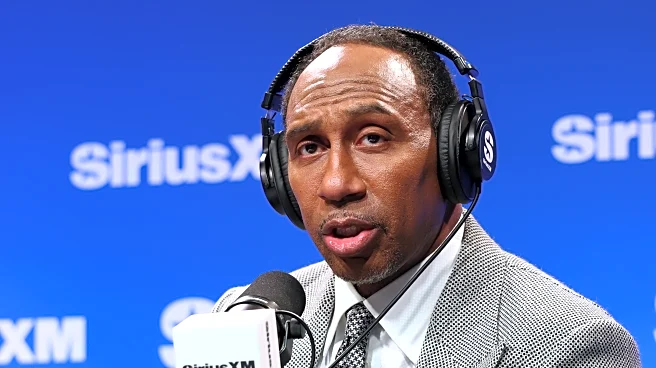What's Happening?
Prince Andrew's banner, featuring his coat of arms, has been removed from Windsor Castle following his decision to relinquish his royal titles and honors. This action is seen as another step in distancing
Andrew from the royal family amid ongoing allegations related to his association with Jeffrey Epstein. Experts suggest that the removal of the banner, typically reserved for high treason or rebellion, signifies further humiliation and isolation for Andrew. The move is part of the royal family's efforts to protect the monarchy's reputation and maintain a moral code.
Why It's Important?
The removal of Prince Andrew's banner from Windsor Castle underscores the severity of the allegations against him and the royal family's response to protect its image. This action reflects the monarchy's commitment to distancing itself from scandal and maintaining public trust. The situation highlights the challenges of managing personal controversies within high-profile institutions and the impact on public perception. It also raises questions about the balance between personal accountability and institutional integrity.
What's Next?
The royal family may continue to take steps to distance itself from Andrew, potentially affecting his future involvement in royal duties and public appearances. The situation may prompt further discussions about the role of titles and honors in the royal family, particularly in the context of scandal and public accountability. The ongoing scrutiny of Andrew's association with Epstein may lead to additional actions to protect the monarchy's reputation.
Beyond the Headlines
The ethical implications of Andrew's association with Epstein continue to resonate, raising questions about accountability and justice. The situation highlights the challenges of balancing personal relationships with public responsibilities, particularly in high-profile institutions like the monarchy.










